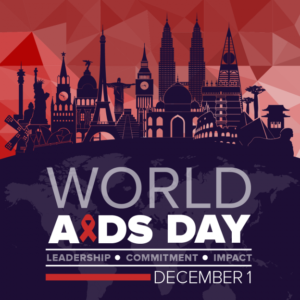What’s your status?
 Do you remember the day, time, month or season the first time you decided to be intimate with that special person in your life? Now, did you know your status? Did you know their status? The most common way that the HIV/AIDS virus is spread is through sexual intercourse and sexual activities. Although sex is not the only way that you can contract the virus it is the most common in America. One of the most nerve racking facts to face is that you have had unprotected sex with someone and you have put your life at risk.
Do you remember the day, time, month or season the first time you decided to be intimate with that special person in your life? Now, did you know your status? Did you know their status? The most common way that the HIV/AIDS virus is spread is through sexual intercourse and sexual activities. Although sex is not the only way that you can contract the virus it is the most common in America. One of the most nerve racking facts to face is that you have had unprotected sex with someone and you have put your life at risk.
No one wakes up in the morning and decides they are going to catch a STD that day or catch a incurable disease. People do decide if they want to have sexual relations with a person before the act itself ever occur. People do decide they love someone and want to experience sex without using protection.
Emotions and being caught in the moment can lead to bad decisions. There are so many reasons that people put their lives at risk and do not realize that the latter effect can cause them heartache and a positive diagnosis.
Getting tested can be one of the hardest things to do because of the anxiety of waiting on the test results but it is worth it. It is better to know if you are positive or negative so that going forward you can make lifestyle adjustments. For those people with NEGATIVE test results it is a sigh of relief. Those with POSITIVE results have a long journey ahead of them. If the virus is caught in its early stages then medicine will need to be taken for the duration of their life. The disease can be managed. Another truth is they will likely need help managing their emotional and mental health to deal with the magnitude of their life never being the same.
Nori Moment: I rarely divulge my personal information but I am going to share today because I practice what I preach. Last week, I visited my OBGYN for my annual check-up and requested to be tested for all STD’s. (As a rule of thumb if you are not a virgin you need to be tested no matter if you are or aren’t sexually active at the time of your annual exam. Get tested at least once a year, preferably twice. Also, depending on your physician you have to request blood work to be tested for STD’s. It is your responsibility to request full panel testing. The standard STD panel tests for chlamydia, gonorrhea, herpes, HIV and Syphilis.) Today, I was notified of my test results and all test results came back NEGATIVE.
Do not play the guessing game concerning your status. Going on the internet and looking up symptoms is not how you get a diagnosis. Consult with a physician. The ONLY way to know your status is to get tested. Know your status, be sure of your health! Don’t be afraid to ask your partner to get tested. Don’t be afraid to ask your partner to show you their test results.
Today is about awareness.
Make good decisions, you only get one life!
Types of contraceptives:
- Abstinence
- Birth Control Implant (Implanon and Nexplanon)
- Birth Control Patch
- Birth Control Pills
- Birth Control Shot (Depo-Provera)
- Birth Control Sponge (Today Sponge)
- Birth Control Vaginal Ring (NuvaRing)
- Breastfeeding as Birth Control
- Cervical Cap (FemCap)
- Condom
- Diaphragm
- Female Condom
- Fertility Awareness-Based Methods (FAMs)
- IUD
- Morning-After Pill (Emergency Contraception)
- Outercourse
- Spermicide
- Sterilization for Women (Tubal Sterilization)
- Vasectomy
- Withdrawal (Pull Out Method)
What is HIV and AIDS?
HIV stands for human immunodeficiency virus. If left untreated, HIV can lead to the disease AIDS (acquired immunodeficiency syndrome).
Unlike some other viruses, the human body can’t get rid of HIV completely. So once you have HIV, you have it for life.
HIV attacks the body’s immune system, specifically the CD4 cells (T cells), which help the immune system fight off infections. If left untreated, HIV reduces the number of CD4 cells (T cells) in the body, making the person more likely to get infections or infection-related cancers. Over time, HIV can destroy so many of these cells that the body can’t fight off infections and disease. These opportunistic infections or cancers take advantage of a very weak immune system and signal that the person has AIDS, the last state of HIV infection.
No effective cure for HIV currently exists, but with proper treatment and medical care, HIV can be controlled. The medicine used to treat HIV is called antiretroviral therapy or ART. If taken the right way, every day, this medicine can dramatically prolong the lives of many people with HIV, keep them healthy, and greatly lower their chance of transmitting the virus to others. Today, a person who is diagnosed with HIV, treated before the disease is far advanced, and stays on treatment can live a nearly as long as someone who does not have HIV.
The only way to know for sure if you have HIV is to get tested. Testing is relatively simple. You can ask your health care provider for an HIV test. Many medical clinics, substance abuse programs, community health centers, and hospitals offer them too. You can also buy a home testing kit at a pharmacy or online.
AIDS stands for acquired immunodeficiency syndrome. AIDS is the final stage of HIV infection, and not everyone who has HIV advances to this stage.
AIDS is the stage of infection that occurs when your immune system is badly damaged and you become vulnerable to opportunistic infections. When the number of your CD4 cells falls below 200 cells per cubic millimeter of blood (200 cells/mm3), you are considered to have progressed to AIDS. (The CD4 count of an uninfected adult/adolescent who is generally in good health ranges from 500 cells/mm3 to 1,600 cells/mm3.) You can also be diagnosed with AIDS if you develop one or more opportunistic infections, regardless of your CD4 count.
Without treatment, people who are diagnosed with AIDS typically survive about 3 years. Once someone has a dangerous opportunistic illness, life expectancy without treatment falls to about 1 year. People with AIDS need medical treatment to prevent death.
Sarah Green, C.G.L.A student and Young Ladies Advocate Mentee is credited as co-writer of this blog post.




